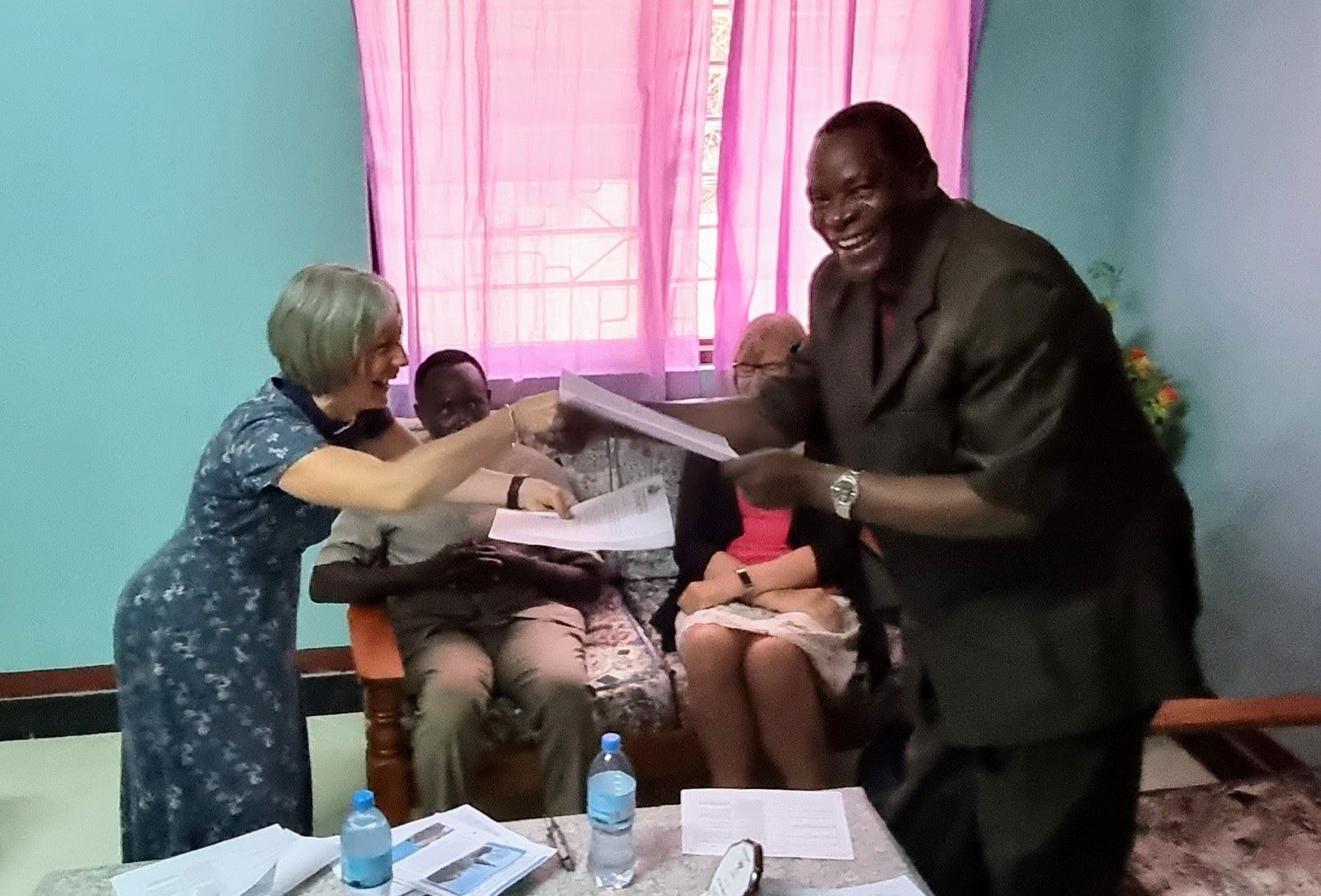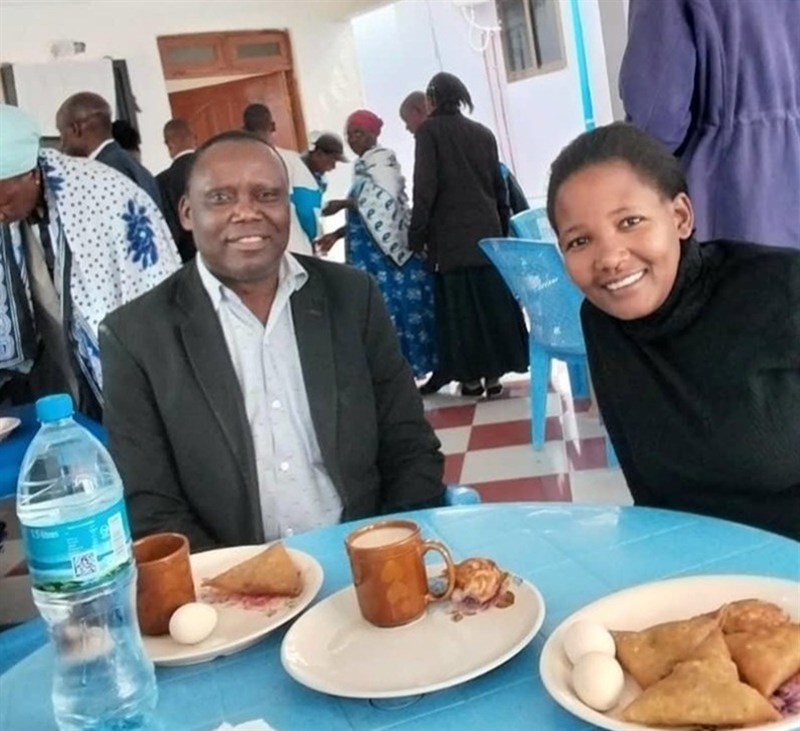Church & Community Mobilization Programme
St James' Church, in the UK Diocese of Rochester, is delighted to be able to support Bishop Given in bringing the Church and Community Mobilization Programme (CCMP) to Kondoa.
Bishop Given’s vision is that the Anglican Church of Tanzania forms leaders who have passion for, and are trained in, the art of equipping the people of God for holistic mission and ministry at the grass roots.
The bishop says “We are addressing the gospel holistically through the CCMP and I can say that it is one of the greatest tools to change the lives of our communities and parishes. It is making the Gospel relevant to people’s lives and bringing lasting change to individuals, churches, and communities. Where the CCMP is active, people experience transformation—spiritually, socially, and economically.”
.
Between 2018 to 2025 seventeen parishes have been able to take part in the education and training programme, as well as the Cathedral of St Paul, the Apostle to the Gentiles.and students at the Kondoa Bible College. The parishes taking part are Magungu, Hamia, Sanzawa, Makorongo, Chinyika, Wekense, Humekwa, Songolo, Mwaikisabe, Rofati, Soya, Ombire, Gwandi, Chemba, Kidoka, and Kambi Nyasa.
Key Achievements so Far
Spiritual Renewal & Personal Empowerment
-
Bible studies and discussions are transforming mindsets—breaking cycles of fatalism and nurturing hope in God’s provision.
-
The church is bearing Christian witness, serving as a channel of God’s blessing to the community.
-
It is making the gospel relevant to people’s lives, through a holistic ministry that integrates evangelism with social responsibility.
-
A deeper faith among church members and strengthened discipleship.
Church Growth & Discipleship
-
Growth in congregations, often through vibrant music ministry.
-
New choirs formed, investment in musical instruments and sound systems.
-
Improvements to church buildings—plastered walls, new floors, better windows, doors, and installation of electrics.
-
In several parishes (e.g. Hamia, Songolo, Khubunko, Magungu, Chinyika, Kambi Nyasa, Humekwa), communities are building new churches and clergy houses.
-
Increased attendance and giving, enabling churches to meet running costs, support pastors, and contribute parish shares.
-
The church acting as a catalyst for change in the community.
Economic Empowerment & Self-Reliance
-
Community members taking initiative, actively problem-solving and being self-reliant.
-
People identifying and effectively using local resources —land, skills, labour, local knowledge – to improve their lives.
-
Improving water access and irrigation. In Sanzawa, resource training inspired church members to dig deep enough to access underground water. The new well now provides safe water for cooking and washing, while also enabling irrigation for vegetables and crops—transforming what was once seen as dry, dusty land into productive farmland.
-
Farmers adopting climate-smart methods, planting drought-resistant seeds, and diversifying crops to include sunflowers, cassava, sweet potatoes, groundnuts, tomatoes, okra, pak choi, onions, and more—boosting yields and food security.
-
Churches establishing model farms to inspire communities (e.g. Songolo, Gwandi, Wekense).
Climate-smart Agriculture & Conservation
-
Communities trained in conservation farming techniques, with some moving away from tree-cutting for charcoal and turning instead to vegetable gardening.
-
Church-run conservation campaigns to plant fruit and shade trees, reducing soil erosion and improving the environment.
-
In Wekense, the church partnered with the local government to plant a variety of trees around the village office—earning formal recognition and a letter of thanks from the ward officer to Bishop Given for his contribution to environmental conservation.
Savings and Credit Groups
-
55 self-help groups now operating, enabling members to save regularly, invest in farming and livestock projects, and launch small businesses.
-
These groups are increasing annual household income and improving living standards.
-
Village Community Funds are being created to finance larger projects in education, healthcare, and food security—helping communities buy grain from other regions during shortages.
Improved Living Standards
-
Parents can now afford school uniforms, fees for secondary school and college, and access to healthcare.
-
Families are upgrading homes with iron-sheet roofs and building modern brick houses.
Educational Advancement
-
Adult literacy classes, run in partnership with local government and churches, ensure full participation in CCMP activities.
-
In Songolo, church members who previously could not read now lead Bible readings, facilitate bible studies, and preach.
-
Literacy skills have opened new income opportunities, while parents now actively promote education for their children.
Gender Equality & Women’s Empowerment
-
Training has reduced gender inequality, child marriage, and discrimination against girls.
-
In Humekwa, a play highlighting the dangers of child marriage is being performed at children and youth events across the diocese.
-
Women are gaining confidence to speak out – the church in Humekwa formed a women’s leadership team, organised around shared concerns.
-
Makorongo established a dedicated group for women entrepreneurs who sell goods in local markets, using profits to meet household needs.
Youth Empowerment
-
Young people, especially young women, are being educated on their rights and equipped with life skills to earn their own money.
-
Training has motivated young men to improve their work ethic and start small businesses.
-
In Ombiri, a group of young men cultivated a maize field, used the harvest proceeds to buy musical instruments and sound equipment, and formed a youth choir now active in church events.
Improved Public Services
-
In Chinyika, the church and community co-funded, and built a much-needed village dispensary and public toilets for the market.
-
Other community-funded projects include an outdoor market in Makorongo and seven new classrooms at Magungu.
-
Newly formed committees decide what community development projects to prioritise and raise funds for.
Community Harmony
-
CCMP has fostered peaceful coexistence between Christians and Muslims.
-
Joint projects —such as raising money together to buy land, build classrooms and construct dispensaries—have united communities across different faith groups.
-
Christian and Muslim members of self-help groups support one another in times of difficulty, due to illness, accident, or the death of a partner or child.
-
At the Cathedral, non-Christian women and Muslims have testified to the deep unity among Christians, making the church—through its worship and gatherings—a spiritual refuge for women, children, and young people.
Active Civic Engagement
-
Churches participate in community projects like cleaning schools, clinics, and village offices.
-
They are taking active roles in village government development meetings and serve on committees—such as in Magungu, where the pastor was part of the team overseeing building materials for new classrooms.
Government Recognition
-
Government officials, involved in new building works, endorse CCMP as a model for sustainable, community-led development.
-
Communities now have a stronger voice in influencing decisions that affect their future.
Sustainable Local Leadership
-
The diocese now has a trained network of CCMP facilitators, savings group managers, community research committees, development committees, and peer educators—ensuring the programme is long-lasting and sustainable.
Below, Bishop Given and Rev'd Judi Hammill, from St James Church. sign a partnership agreement.

Rev'd Kedmon Nghakamo is the CCMP Coordinator and senior facilitator. Janeth Naisaa is the CCMP field officer. They both teach at the Kondoa Bible College.

You can contact St James' Church for more information about the CCMP at: https://www.stjamestw.co.uk/kondoa.htm